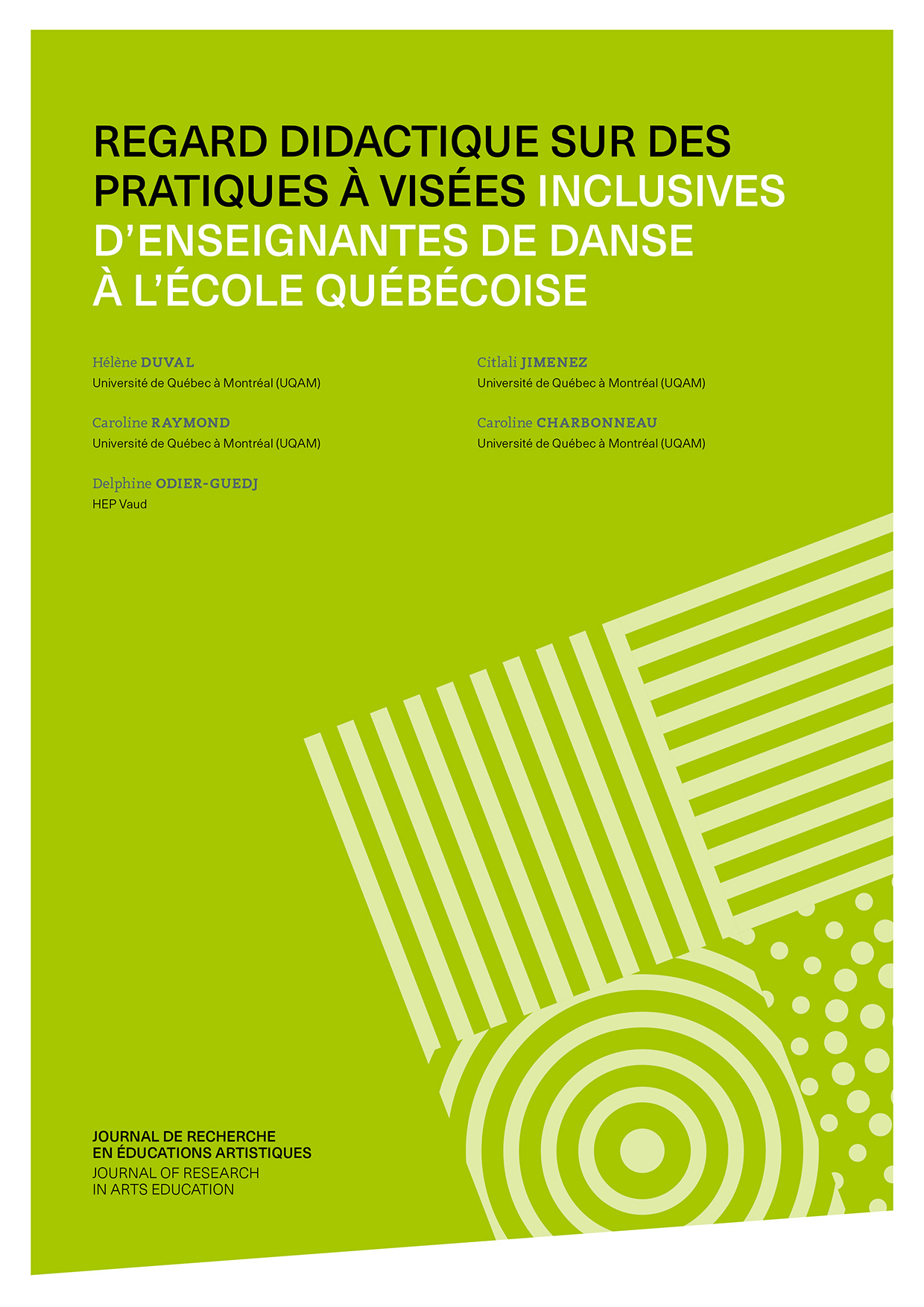Regard didactique sur les pratiques à visées inclusives d'enseignantes de danse à l'école québécoise
DOI:
https://doi.org/10.26034/vd.jrea.2023.3588Keywords:
dance, education, didactics, pedagogy, QuebecAbstract
For the past forty years, dance has been part of the Quebec school curriculum as an arts discipline. In the current context, teaching practices are challenged by the prerogative of school integration, where the dance teacher must “adapt his or her interventions to the needs and characteristics of students with handicaps, social maladjustments, or learning disabilities” (Government of Quebec, 2001). This article presents part of the results of a qualitative study on the practices of dance teachers in groups that include students with special needs, the objective of which is to describe the didactico-pedagogical and identity-based strategies deployed by the teachers to promote success for all. Based on the concept of interactive didactic dialogue (Raymond, 2014, 2018), we identified three major value orientations (Jewett, 1977) acting as the cement of the teacher-student trust relationship: valuing the uniqueness and potential of each student, preserving the unity of the group, and creating a space for authentic and egalitarian expression. The latter, as well as the way in which the teacher invests and structures the classroom space, promote the use of didactical strategies (playful activity and didactic touch), facilitating the mobilization of dance knowledge in the context of school integration at the primary and secondary levels.

Downloads
Published
Issue
Section
Categories
License
Copyright (c) 2023 Hélène Duval, Caroline Raymond, Delphine Odier-Guedj, Citlali Gimenez, Caroline Charbonneau

This work is licensed under a Creative Commons Attribution 4.0 International License.
The CC-BY licence authorises the sharing and adaptation of the document provided that the work is credited, a link to the licence is included and it is indicated whether any modifications have been made.


